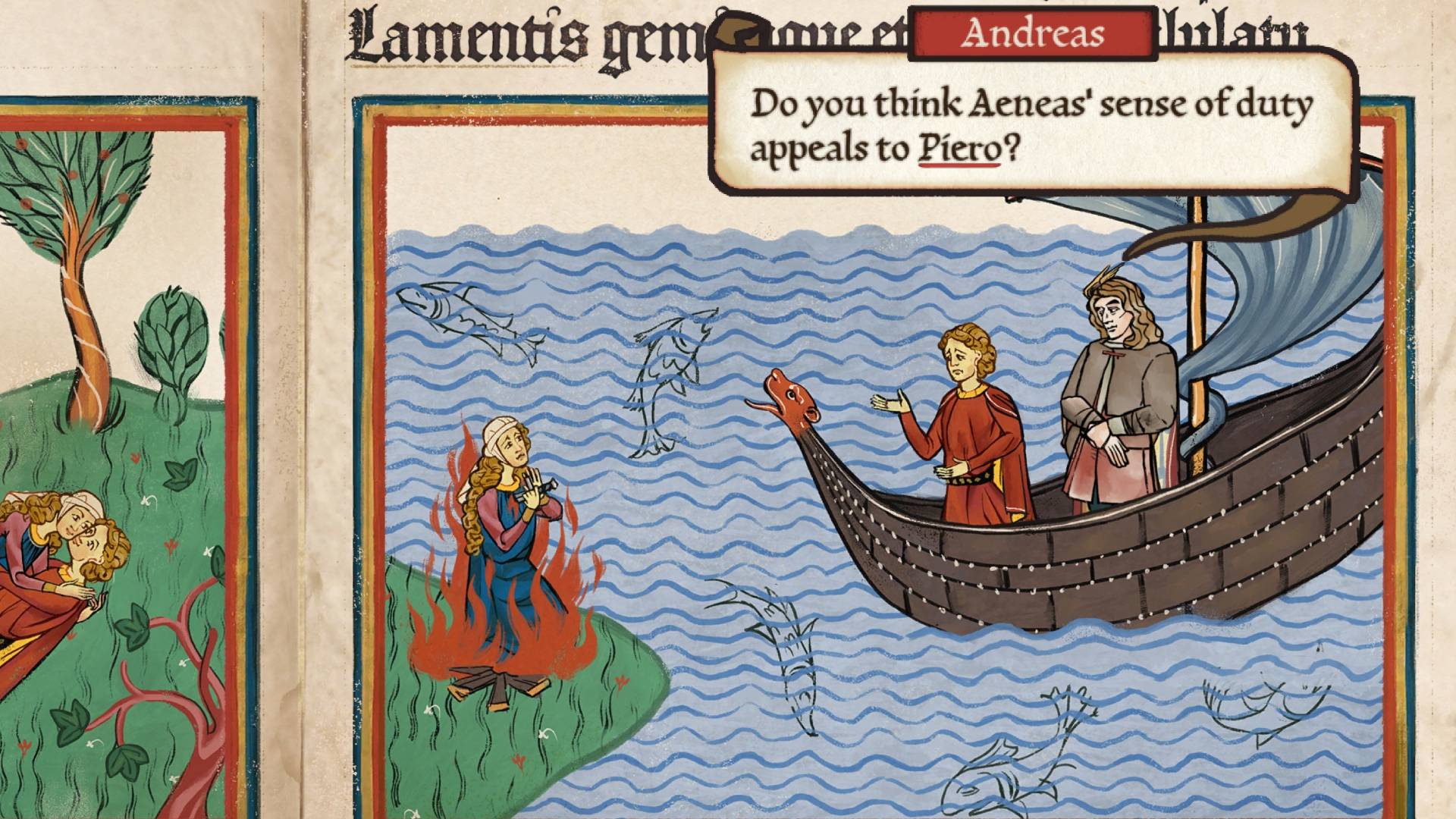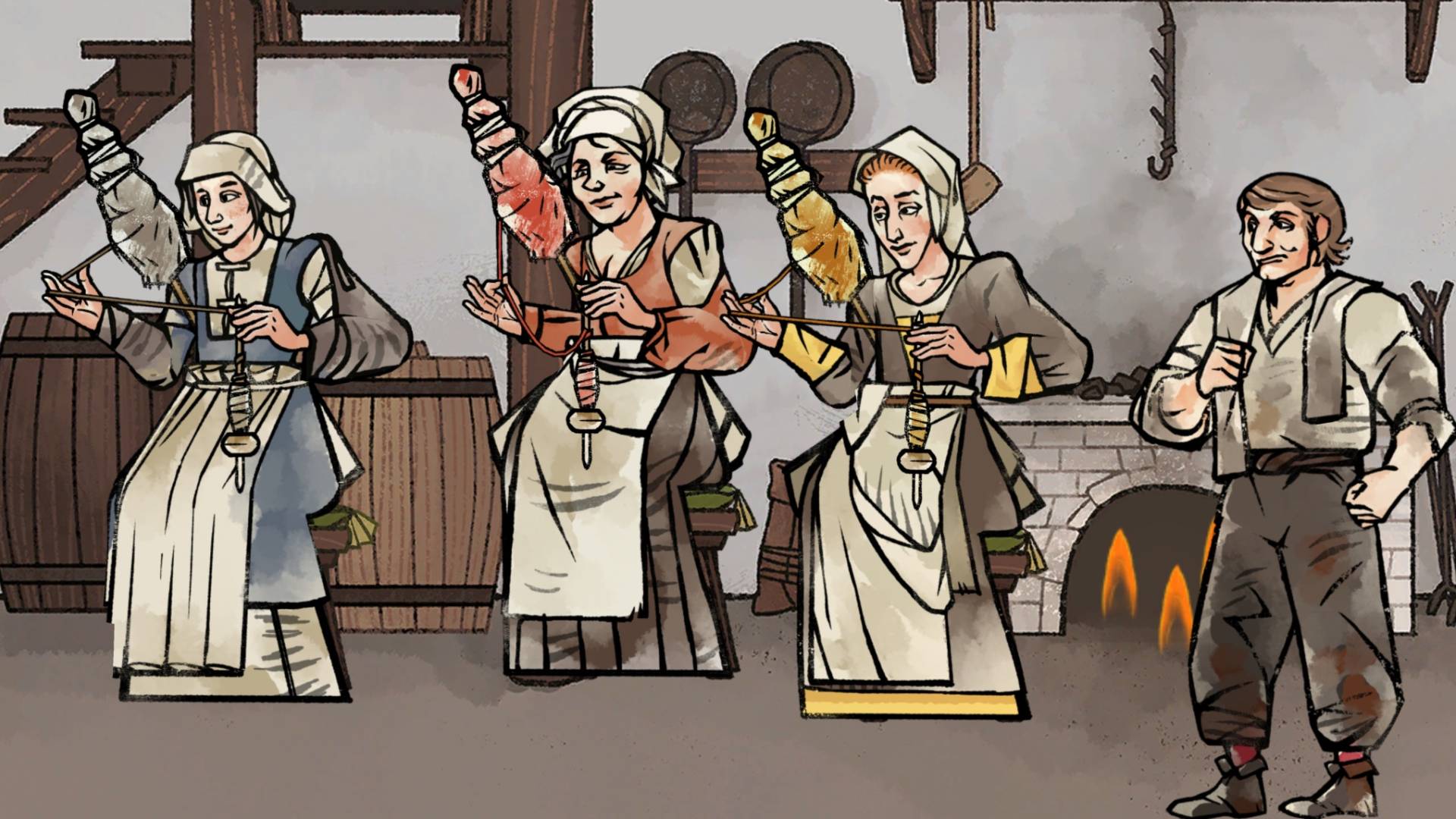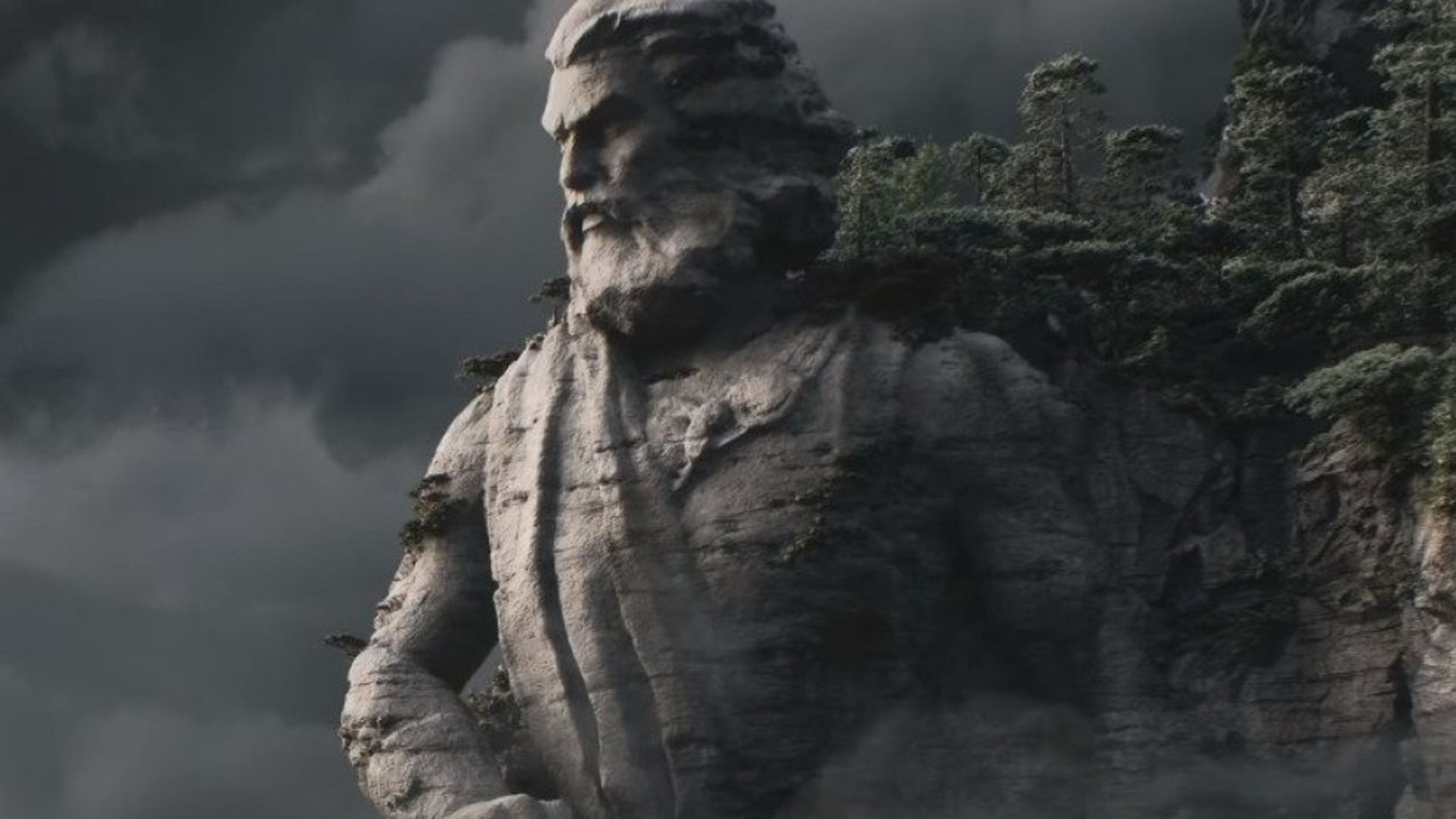Pentiment shows how much freedom Fallout's devs have under Microsoft
Pent up

Picture it: you’re standing in front of the Microsoft board, who’s just bought your studio. They ask you about the first games you’ll be making for them after spending all that money to acquire you, and you tell them:
Um, did you ever see Honey I Shrunk The Kids? Ok, well, that but expressed as a survival game. Also, a sci-fi RPG and a point-and-click about the church’s place in 16th-century Bavaria.
Pentiment silences all doubt: the studio’s free to do absolutely whatever it likes
I think we all have enough data by now to accurately assess that Obsidian, the studio that can trace its lineage all the way back to Baldur’s Gate dev Black Isle and who made the best games in the Star Wars: Knights of the Old Republic, Fallout and the Pillars of Eternity series, has not had its creative wings clipped. Microsoft’s acquisition of the studio in 2018 might have looked like an ominous portent, but Pentiment silences all doubt: the studio’s free to do absolutely whatever it likes.
How else might you explain this game’s existence? As modern PC gaming esoterica goes, a 2D puzzle-adventure set in a small Bavarian village over the course of several decades in the 1500s is a real flag in the ground. Consider that the big selling points here are the creative use of typefaces, fastidious historical detail, and a degree of player agency that reveals itself over decades in game-time and 20+ hours of our own. If you’re a publisher and platform holder looking for nothing more than a quick buck from your new acquisition, your palms have gone sweaty as you hear that pitch.
Book smart

Nobody was under any illusions that the medieval philosophy game was a chart-topper in the making
But Pentiment was never about making a buck, quick or otherwise. You’ve probably seen it described as a ‘passion project’ of Josh Sawyer’s – in fact, it’s hard to find a review that doesn’t explicitly mention that fact – and the revered designer has been pretty transparent about Pentiment’s extremely niche commercial appeal. Nobody was under any illusions that the medieval philosophy game was a chart-topper in the making. And were it not for Game Pass, Sawyer says the team wouldn’t have made the game at all.
“I told my boss ‘I gotta make this right now, and I want to pitch it towards Game Pass,’” Sawyer told us when explaining that Obsidian worked on Pentiment in secret before telling Microsoft. "The reason I thought it would be good is because Microsoft had Game Pass, which seemed like a great platform for this type of game.
“I hope a lot of people might come to it who might not normally play adventure games. If they bounce off it, that’s ok, because it’s on Game Pass. It’s not a big monthly investment.”
Get daily insight, inspiration and deals in your inbox
Sign up for breaking news, reviews, opinion, top tech deals, and more.

Game Pass takes the benefits of digital distribution to the extreme: Microsoft and Obsidian are all but giving you Pentiment for free
In the olden days, when publishers printed games onto discs, placed them in boxes, and shipped them to shopping malls, Pentiment would be a commercial disaster. You needed to sell a lot of copies just to make the manufacturing run worth it. But Game Pass takes the benefits of digital distribution to the extreme. From the consumer’s point of view, Microsoft and Obsidian are all but giving you Pentiment for free.
And perhaps the ability to sling a niche labor of love like Obsidian’s latest release onto Game Pass where a massive audience was waiting was exactly what turned their heads in the first place. In the aftermath of that Microsoft buyout in 2018, Obsidian studio head Feargus Urquhart told Gamesindustry.biz that a different publisher had approached them about a buyout previous to Microsoft’s move.
However, that deal would have seen Obsidian staff move onto the support of an ongoing title for that publisher. Once Urqhuart realized the buyout offer had come about because the publisher was struggling to hire staff for its existing product, he declined.
You can see now, then, why the Microsoft deal must have looked so appealing. Rather than shift the team from intricate story-led RPGs to quality-of-life updates on a live service shooter, the platform holders instead bankrolled multiple projects that feel like they’ve been on Obsidian’s mind for years. And it’s given them a means of releasing those offbeat titles to a large audience without a pay barrier. Let’s say you’re Urquhart: would you turn that down?
Vow or never

That caveat, one suspects, is Avowed. It looks like the project with the most riding on it of all the commercial undertakings between the two companies. A first-person, blockbuster RPG set in the same universe as Pillars of Eternity, but based on early details pitched to topple the likes of Skyrim, The Witcher, et al, it would only be possible with the kind of funding an entity like Microsoft can offer. But as we’ve seen a thousand times in the games industry, big budgets mean big pressure.
the implications for Obsidian, if Avowed performs poorly, are surely significant
Of course, whether or not Avowed becomes a massive deal that breaks through into mainstream culture the way Skyrim did, Microsoft wins either way. Following Bethesda's $7.5 billion buyout, it can simply wait for the Elder Scrolls 6 to fulfill that objective. But the implications for Obsidian, if Avowed performs poorly, are surely significant.
So what happens after Avowed’s release – after the dust settles, metascores are aggregated and initial sales are tallied – will be telling. If you want to see how much creative freedom Obdisian has, look for the studio’s next announcement after Avowed.
If you find yourself watching the trailer for another esoteric passion project on an E3 conference screen, you’ll know all’s well with the world. If you’re greeted by Pillars Legends: Chronicles, a new free-to-play CCG from the Pillars universe, you’ll know Avowed’s sales targets were not met, that people in boardrooms cross-thatched their fingers meaningfully, and strategies were pivoted.
Of course, there’s absolutely nothing to indicate that Avowed won’t be great. Pentiment is enjoying a moment in the sun and the consensus is that Obsidian’s writing and world-building is as good as ever. The little details we have seen on Avowed are all hugely encouraging, and the Pillars universe can easily withstand a sprawling triple-A title mining its riches for content. In conclusion, massive corporate buyouts are good. I think we can all agree on that much.

Ad creative by day, wandering mystic of 90s gaming folklore by moonlight, freelance contributor Phil started writing about games during the late Byzantine Empire era. Since then he’s picked up bylines for The Guardian, Rolling Stone, IGN, USA Today, Eurogamer, PC Gamer, VG247, Edge, Gazetta Dello Sport, Computerbild, Rock Paper Shotgun, Official PlayStation Magazine, Official Xbox Magaine, CVG, Games Master, TrustedReviews, Green Man Gaming, and a few others but he doesn’t want to bore you with too many. Won a GMA once.